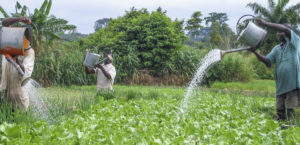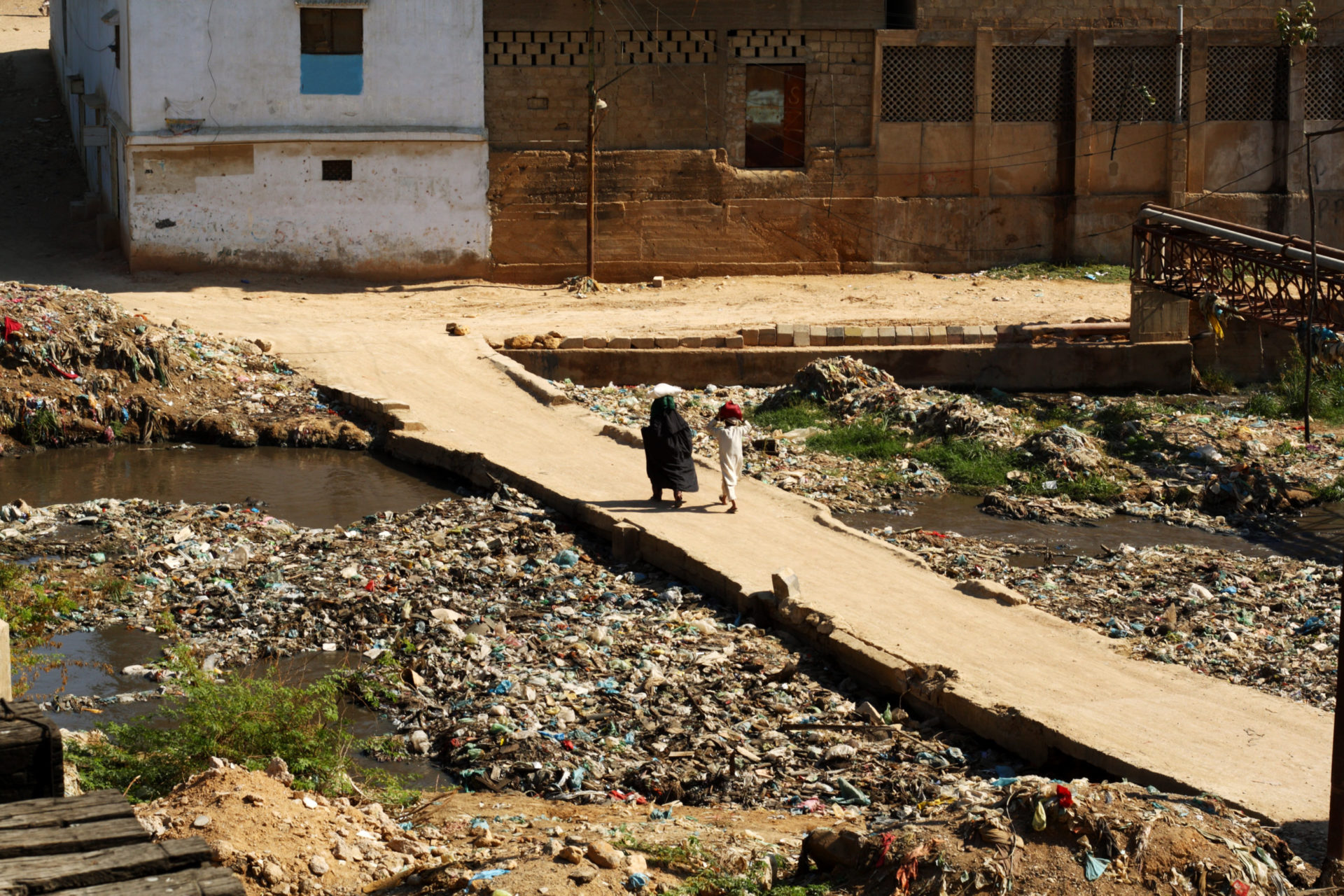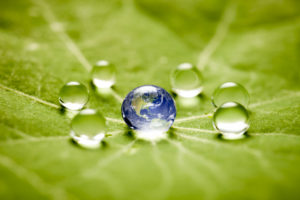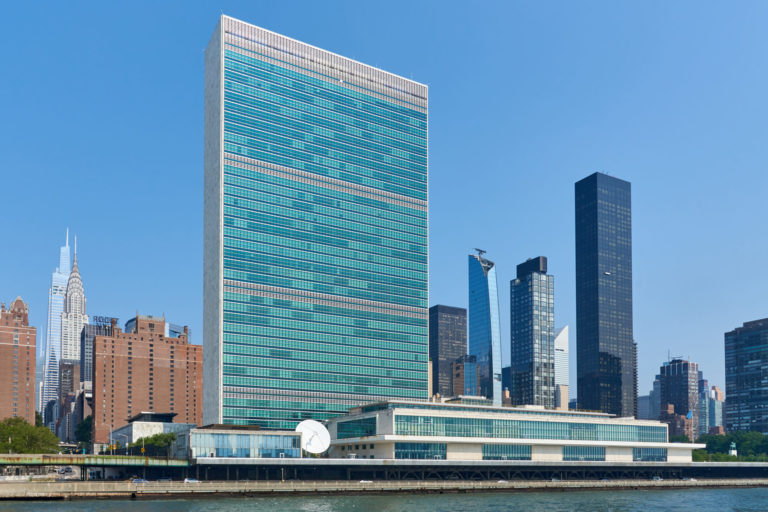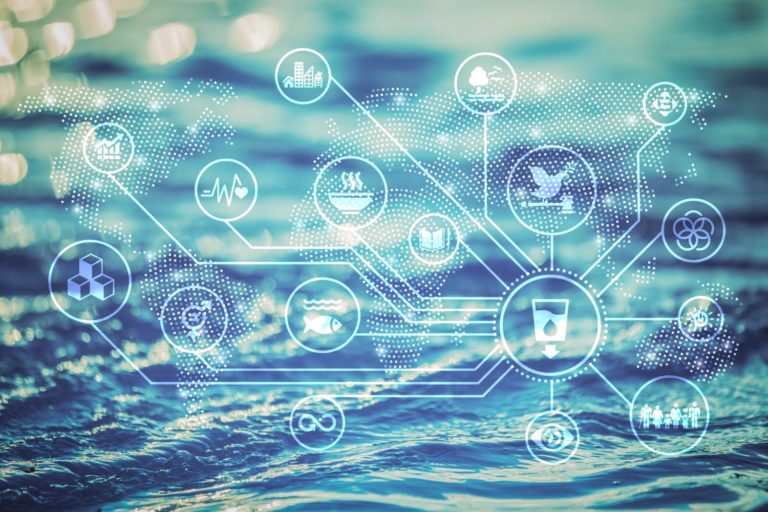SIWI at the UN High-Level Political Forums
Water is key to the success of all 17 SDGs that aim to transform our world into the future we want.
SIWI is working to highlight the relevance of water not only within the context of achieving SDG 6, but its importance in reaching all 17 Goals, the equitable implementation of the global agendas and for enabling a sustainable and resilient recovery from the COVID-19 pandemic.
Freshwater is essential to all human activity and development and is embedded in all of the sustainable goals. While SDG6 is mainly dedicated to access to clean water and sanitation for all, there are water-related targets in most other SDGs as well. The world needs to accelerate action to reach the targets set in the 2030 Agenda, and resilient water management is one key aspect to achieving these goals. This is the starting point for SIWI’s engagement at HLPF and our work with the 2030 Agenda.
HLPF 2021
The theme of HLPF 2021 is a sustainable and resilient recovery from the COVID-19 pandemic, for which water is vital
In the most direct sense, access to water, sanitation, and hygiene is essential for handwashing, one of the most effective ways of limiting the spread of COVID-19 and other infectious diseases. To build resilience against future pandemics, long-term access to water, sanitation, and hygiene must be ensured. In a broader sense, the pandemic highlights that our current relationship with nature and natural resources is unsustainable. In the recovery efforts from COVID-19, focus must be on establishing a new pact with nature that ends the mismanagement of natural resources, including water resources, and instead ensures the needs of people as well as the planet.
SIWI is therefore present at the HLPF through the organization and active participation in side-events and sessions, contributing inputs to the Ministerial Declaration, publishing policy briefs and recommendations, engaging with decision makers and by engaging in the Government of Sweden’s delegation to the HLPF.
For updates, follow us on Twitter, on the hashtag #SIWIatHLPF.
Previous High-Level Panels
The 2020 HLPF is especially significant in that, ten years out from the 2030 delivery deadline, this session launched accelerated global efforts for the next decade and focused on ways to operationalize the decade of action through concrete approaches and policies that can accelerate progress towards the SDGs.
In 2020, SIWI was selected to participate in the Government of Sweden’s e-delegation to the HLPF and followed HLPF official meetings and side events related to water. SIWI’s written statement for the General Debate was published within a compilation of NGO statements.
Recommendations for accelerated action and transformative pathways
The set of goals reviewed in this HLP was:
- SDG 4 on quality education
- SDG 8 on decent work and economic growth
- SDG 10 on reduced inequalities
- SDG 13 on climate action
- SDG 16 on peace, justice and strong institutions
- SDG 17 on partnerships for the goals
Equitable access to water for agricultural production can for example play a key role in achieving SDG 10 on reduced inequalities. For smallholder farmers in rural areas, supplementing watering of crops can make the difference between farming as a mere means of survival and farming as a reliable source of livelihoods.
Recommendations
The 2030 Agenda is a complex and intertwined framework with a diverse set of goals and targets. However, when looking for solutions, individual goals cannot be tackled in an isolated manner. The Agenda’s achievement can be enhanced when taking into consideration other goals, hence avoiding trade-offs.
One trait that is common to most of the SDGs’ goals and targets, is their dependence upon sustainable water resources. Water is the blue thread that can connect and lend coherence to the 2030 Agenda and serve as a link also to other global processes such as the Paris Agreement. We can make actionable and measurable strides in reducing poverty, inequality, hunger, aquatic and terrestrial environmental degradation, economic disparity and injustice by:
- ensuring equitable access to clean, reliable water resources for both humans and nature;
- improving the effectiveness, fairness and transparency of water governance from the local to transboundary level;
- climate-proofing our water management tools and approaches;
- recognizing water’s value when it comes to social, environmental and economic prosperity; and
- taking a human-rights based approach to water and ensuring that women, youth, indigenous populations and vulnerable groups are empowered to take action and become right holders as well as duty bearers.
Read more about those recommendations
Policy brief: Connecting the SDGs through resilient water management
The world’s delay in reaching its targets for SDG 6 and the insight that basically all SDGs are linked to water, are the starting points for SIWI’s engagement at HLPF and our work with the 2030 Agenda in general.
For example the other SDGs on the agenda: SDG 7 on Energy, SDG 11 on cities, SDG 12 on sustainable production and consumption, SDG 15 on land ecosystems and SDG 17 on global cooperation have obvious effects on water and are themselves dependent on water.
Read more about these connections in our latest policy brief: Water: the path to Agenda 2030 implementation.
SIWI’s role at HLP 2018
SIWI has a consultative status to the UN Economic and Social Council (ECOSOC) that hosts the HLPF and has contributed to the preparation of the meeting with input to HLPF as well as advising the Swedish Government in the development of their positions ahead of HLPF.
SIWI has contributed to the content of the SDG 6 Synthesis report, has given input to the draft ministerial declaration of the HLPF and engaged strongly in the High Level International Conference on Water Cooperation as a key milestone in the lead up to HLPF.
SIWI also published an Open Letter that calls for action and takes a closer look at how the SDGs can be achieved.

